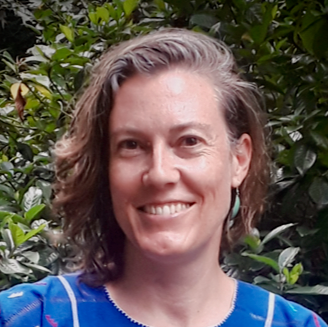Embodied responses to climate change, extreme temperature, and occupational risk: CKDu in Mesoamerica:
This pilot project, beginning in summer 2019, examines the experiences of sugarcane cutters, their families, and the clinicians that treat them for Chronic Kidney Disease of nontraditional causes (CKDnT), also known as Chronic Kidney disease of uncertain origins (CKDu), and Chronic Interstitial Nephritis of Agricultural Communities (CINAC). This disease, thought to be a result of a combination of extreme heat and dehydration, has killed an estimated 47,885 people in Mesoamerica between 1997 and 2013. Between an estimated 20 and 30 thousand of these deaths have occurred in Nicaragua and El Salvador among sugarcane workers, whom are considered to be at the greatest risk for contracting the disease.
Utilizing a feminist geographic lens to thinking about bodies, health, and the environment, this research will advance our understanding the experiences of the epidemic by those who are diagnosed, those who provide treatment, and those who care for loved ones affected by the disease. Through an investigation into knowledge and practices of CKDnT among those who diagnose and treat, those who care for, and those who are diagnosed and treated, this research additionally proposes to provide a fine-scale analysis of the impacts of the disease. In particular, a qualitative focus on the embodied and lived experiences of those who interact with CKDnT will shed light on the individual, institutional, and environmental contexts that shape and are shaped by this disease.
Gender, power, & Reducing Emissions from Deforestation and Forest Degradation (REDD+):
This project entails integrating feminist theories of knowledge and power with environmental governance and political ecology to reframe and enrich our understanding of the multi-scalar social processes that shape environmental change and rural livelihoods. Looking both at the gender-specific implications for REDD+ as well as the everyday material practices and actors involved in pilot REDD+ projects in Mexico, this research aims to understand a) how participation in REDD+ is socially and spatially differentiated by gender, and b) how the operation of power across multiple scales influences policy and practice locally.
Gender, adaptive capacity, knowledge production, and climate change in central Mexico:
In 2009, I conducted research in the Mexican state of Guanajuato that analyzed how women’s everyday material practices contribute to the production and exchange of knowledge, resources and responses to adverse economic and ecological changes, such as El Niño induced droughts, increased male migration, and neoliberal agricultural policies. Working from the intersections of feminist geography, feminist theories of knowledge production, social reproduction, and adaptive capacity frameworks, this research explored how the production of knowledge and relations of power shape local adaptation and decision-making under socio-ecological uncertainty. I found that approaching questions of adaptation and adaptive capacities through the lens of knowledge production and social reproduction provided important insights into how material realities shape the production and exchange of resources. This production and exchange then influences the ability of individuals, families, and communities to translate this knowledge into effective action in the face of political, economic, and environmental change. Such research allows us to not only understand how households respond to socio-ecological change, but also the important implications that knowledge production and application posses for livelihoods and food security, resource management in a changing environment, and the limits and opportunities for strengthening adaptation.
Understanding “challenges to adaptation” as part of the New Socio-economic scenario development:
The Intergovernmental Panel on Climate Change (IPCC) has lead the charge to develop a new set of climate scenarios that are updated and more comprehensive than the previously used SRES. Working with colleagues from the National Center for Atmospheric Research and the Pardee Center for Sustainable Futures at the University of Denver, we focused on the portion of the new scenarios that describe socioeconomic change: Shared Socio-economic Pathways (SSPs), which are comprised of both challenges to mitigation and challenges to adaptation. We focused specifically on developing a conceptual framework for a shared understanding of the benefits and trade-offs inherent in the challenges to adaptation concept for both the integrated assessment modeling community as well as the vulnerability and adaptation research community.

